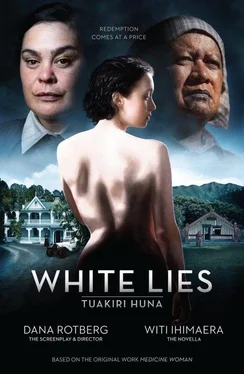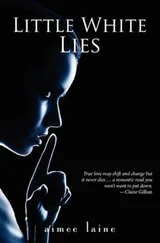Paraiti ponders her words, and then nods in reluctant agreement. ‘I can find my own way out,’ she says. She walks down the stairs, along the corridor to the side door. As she walks down the pathway and closes the gate behind her, she is aware that Mrs Vickers is watching her go. She continues along Waterside Drive and, when she is out of sight of the house, her legs fail her and she collapses into the shadows. ‘Oh, child, forgive me for the pain I have done to you tonight.’
My purpose is to save lives, Mrs Vickers, not take them away .
She hears panting and sees that Tiaki has joined her; he licks her face. In the distance, tied to a fence, are Ataahua and Kaihe. Sighing to herself, Paraiti joins her animals. They could be home by dawn.
‘I have gambled tonight,’ she says to Tiaki as she mounts Ataahua. ‘I have played a game of life and death. Let us pray that I will win.’
Together they fade in and out of the streetlights and, finally, into the comforting dark beyond the town.
Normally, Paraiti would have spent the rest of her haerenga on a circuit of the villages closest to Waituhi. The old woman with a dog, horse and mule are familiar sights among the Ringatu faithful in Turanga, which the Pakeha have renamed Poverty Bay.
Paraiti would have travelled throughout the lands of Te Whanau a Kai, Te Aitanga a Mahaki, Tai Manuhiri and Rongowhakaata. Wherever the Ringatu festivals take place, there you would have found her. Where the faithful gather to sing, pray and praise God, there she would be also: Waihirere, Puha, Mangatu, Rangatira, Waioeka, Awapuni, Muriwai and many other local marae. Still avoiding te rori Pakeha, the Pakeha road, she would instead have ridden the old trails along the foothills or rivers, the unseen roads that crisscross the plains like a spider’s web.
But for six days, Paraiti remains in Waituhi, venturing only every second day to Gisborne, and returning at midnight. ‘Where is Scarface?’ her people ask, puzzled at this change in her routine. ‘Is she ill? What will happen to us if she is unable to visit this year?’ And some, worried, come to Waituhi to knock on the door of her kauta. ‘Are you all right, takuta?’
When they are patiently told that everything is kei te pai and that she is only delayed, they leave.
Even so, Paraiti decides to make an appearance at a Ringatu hui at Takipu, the large meeting house at Te Karaka, so that the people will see she’s still alive and kicking. Takipu is so beautiful that Paraiti cannot help but be grateful that her whakapapa connects her to such a glorious world.
The hui incorporates a kohatu ceremony, an unveiling of the headstone of a brother Ringatu healer, Paora, who died a year ago. The obelisk, the final token of aroha, is polished granite, gleaming in the sun. It is a sign of the love for a rangatira. As Paraiti joins the local iwi, weeping, around the obelisk, she reflects on the fragility of life. ‘Not many of us morehu left,’ she thinks to herself.
Afterwards, she spends some time talking to Paora’s widow, Tereina. ‘It was a beautiful unveiling for a beautiful man,’ she says.
‘Ae,’ Tereina replies. ‘A woman must have a good man at least once in her lifetime and I was lucky, he was the best.’ Tereina smiles at the memory. ‘The men may be the leaders, but when they die, it is the women who become the guardians of the land and the future.’
Returning to Waituhi, Paraiti cannot shake off Tereina’s comment about having a man in her life. She has always been alone with her animals, unloved by any man except her beloved father. Would things have been different if she had not been scarred?
Her mood deepens as she thinks of all the changes she has observed in her travels. Since she and her father saw the ngarara, the marks of the new civilisation have proliferated across the land. New highways and roads. More sheep and cattle farms. Where once there was a swingbridge there is now a two-lane bridge across the river. And although the old Maori tracks are still there, many of them have barbed-wire fences across them, necessitating a detour until a gate is found. On the gate is always a padlock and a sign that says ‘Private Land. Tresspassers will be prosecuted. Keep out.’
The changes are always noted by the travellers of the tracks and passed on to other travellers, ‘Kia tupato, beware,’ because, sometimes, horses or children can be ensnared in the coils of barbed wire discarded in the bush after the fences have been built. Paraiti has sewn up many wounds inflicted by barbed wire as pighunters and foresters have rushed after prey in the half light of darkness.
So the travellers keep themselves up to date with the death of Maori country. And Paraiti suddenly recalls Mrs Vickers’ words. You wear your scar where people can see it. I wear mine where they can’t .
Of all the changes wreaked by civilisation, it is the spiritual changes that are the worst. The ngarara is not only physical; it has already infiltrated and invaded the moral world that Paraiti has always tried to protect. She cannot but compare Mrs Vickers’ situation to that of the young girl in Ruatahuna — what was her name again, Florence? — who had lost three babies while they were still in the womb. In one case, the baby is strongly desired; in the other, unwanted.
Perhaps the marks that really matter are, indeed, the ones that can’t be seen.

How Paraiti manages to get through the next six days, she will never know. She prays constantly, morning, noon and night, her karakia unceasing and seamless. All that sustains her as she hastens to Waterside Drive and her rendezvous with Mrs Vickers is her immense faith, and the words of her father, ‘You know what you have to do.’
But every second evening, when Maraea meets her at the side door, ‘Come in, quickly, before you are seen,’ Paraiti feels sick to her stomach that all her efforts might be for nought — that, instead of saving the baby, she will be complicit in its death. And every time she administers the herbal compound, following it up with forceful massaging, and then the rapid blows to the womb, she realises that her anxiety must be as nothing when compared to that of the baby in the womb.
What must it be like to be in the house of birth, a whare meant to nurture and sustain, undergoing the trauma as its walls and roof are caving in? And in that environment, with stitched tukutuku ripping apart, kowhaiwhai panels cracking, and the destruction of all the whakapapa contained therein, what must it be like for the baby? Where can it go when the poutokomanawa begins to collapse and the poisons begin to flood through the placenta that feeds it? Even when fighting back, how can it know that even this is anticipated and is part of its brutal eviction?
‘Forgive me, child, oh forgive me,’ Paraiti whispers as she maintains the treatment. Ironically, Mrs Vickers’ own strength and stamina are working in the baby’s favour.
And on the sixth evening, when Mrs Vickers, groaning in pain, cries out, ‘Now, Scarface, do your work and rid me of this child,’ Paraiti plays her trump.
She has been stalling for time. ‘Your cervix has not dilated sufficiently,’ she says to Mrs Vickers. ‘The door of the whare tangata is not wide enough to enable the baby’s delivery.’ Paraiti has not increased the dosage, nor the massage therapy; every hour increases the chances of the baby’s survival. Turning a deaf ear to Mrs Vickers’ torrent of curses, Paraiti tells her, ‘I will do it tomorrow night.’
‘Kororia ki to ingoa tapu,’ she prays to the evening sky and all throughout the next day. Her animals, sensing her anxiety, honour her fervency with barks, whinnies and brays of their own; otherwise, they stand and wait in silence and on good behaviour.
Читать дальше













